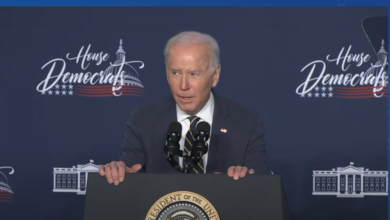Economy Constrained by Competing Effects of Elevated Inflation and Strong Labor Market
Tightening monetary policy and elevated inflation remain the primary causes of a stagnating economy despite strong job growth, according to the August 2022 commentary from the Fannie Mae (OTCQB: FNMA) Economic and Strategic Research (ESR) Group. The ESR Group’s latest forecast of real gross domestic product (GDP) growth for full-year 2022 and 2023 remained essentially flat compared to last month at 0.0 percent and negative 0.4 percent, respectively. The continued expectation that real GDP growth will be negative beginning in 2023 is due to the combined effects of tighter monetary policy weighing on business and residential investment and still-elevated inflation weighing on consumer spending. The ESR Group does expect inflation to slow gradually, with the headline Consumer Price Index forecast to average 7.2 percent annually by year-end 2022 and 1.8 percent by year-end 2023, but it notes the precariousness of predicting headline inflation due to energy price volatility and the possibility of renewed supply chain or manufacturing disruptions. The core personal consumption expenditure price index, the focus of the Federal Reserve, is expected to end 2023 at 2.9 percent.
The ESR Group expects total home sales to decrease 16.2 percent in 2022. This decline represents a further downward revision from last month’s forecast of a 15.6 percent drop, as recent incoming data point to a faster slowdown in near-term sales than previously expected, despite mortgage rates having moved lower over the last few months. The latest forecast also projects total mortgage origination activity at $2.47 trillion in 2022, down from $4.47 trillion in 2021, and then a further reduced $2.29 trillion in 2023.
“The economy is progressing largely as we’d previously forecast,” said Doug Duncan, Fannie Mae Senior Vice President and Chief Economist. “The near-term decline in gas prices has given consumers a chance to catch their breath and shift some spending elsewhere. Likewise, lower interest rates at the longer end of the yield curve should be supportive of the economy through the end of 2022, which is why we’re forecasting modest economic growth in the second half. However, we maintain the view that a modest recession is likely to emerge in the new year as the labor market softens and the effects of tighter monetary policy are more acutely felt.”
Duncan continued: “Housing remains clearly on the downtrend – and has been for several months now – due to the combined effects of outsized home price increases and the significant and rapid run-up in mortgage rates. The question for many market observers is how quickly, and with how much additional tightening, the core inflation rate will come down to the Fed’s preferred target. In our view, the labor market’s continued strength suggests that the Fed is likely to maintain its aggressive posture through the end of the year.”
Content created by Conservative Daily News and some content syndicated through CDN is available for re-publication without charge under the Creative Commons license. Visit our syndication page for details and requirements.




